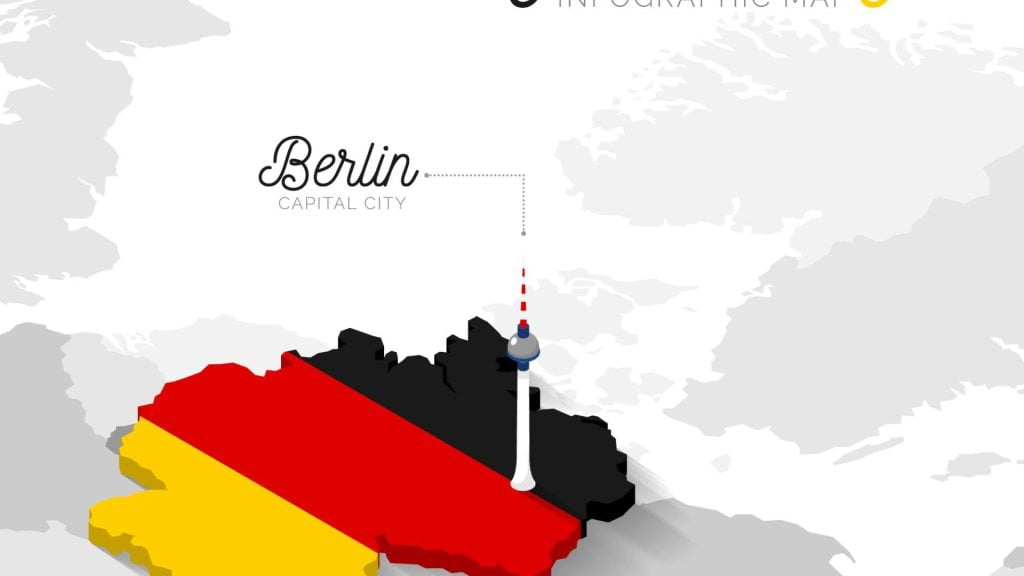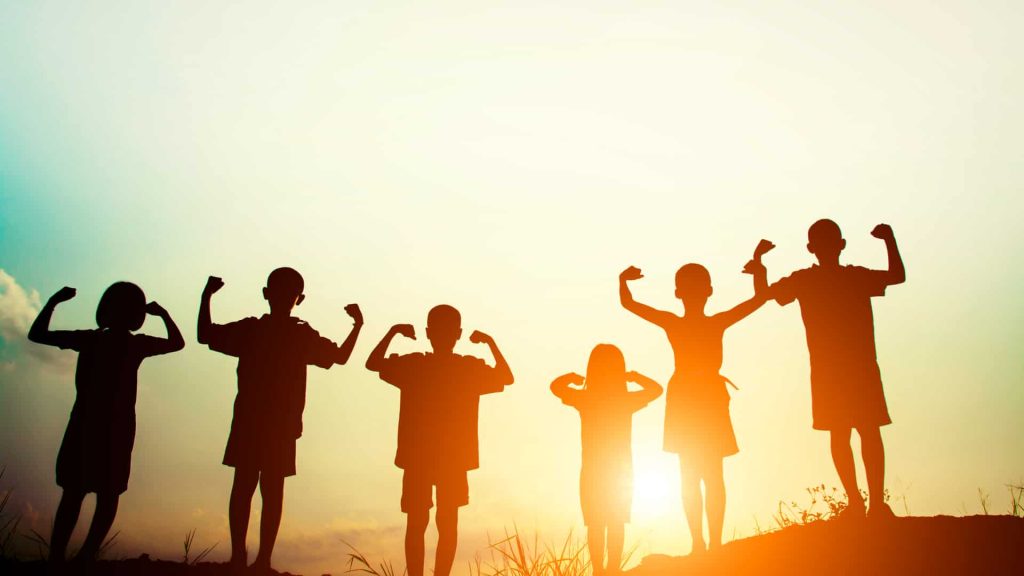
Whether you’re a culture-hungry traveler, a holiday buff, or just in for some serious fun, our guide is your all-access pass to the must-not-miss fiestas!
Forget the mundane and the been-there-done-that; we’re diving into the heart of celebrations with insider tips, quirky facts, and secret spots that’ll make each holiday an unforgettable adventure. From the world-renowned Oktoberfest to the hidden gems of local festivities, we’ve got your calendar packed.
So, dust off your lederhosen, practice your ‘Prost!’, and join us on a journey through 2024 where every stop is a celebration. Are you ready to unlock the festive spirit of Germany? Let’s go!
7 German Celebrations and Holidays You Should Not Miss Out On in 2024
Now that a new year is around the corner, we are sure you all have your calendar spreads open with a list of holidays and celebrations to plan. We thought we should contribute our fair share in the form of some overlooked and underrated celebrations to add to your roasters.
Your recommended post for the week: 15 Things Nobody Tells You About Working in Germany
#1 New Year’s Day (Neujahrstag)
Celebrated On: Monday, January 1st, 2024
New Year’s Day, or “Neujahrstag,” in Germany marks not just the beginning of a new calendar year but a day filled with traditions, resolutions, and celebrations. As the first of January dawns, streets quiet down from the previous night’s revelry of Silvester (New Year’s Eve), where fireworks illuminate the sky and parties spill into the morning.
On Neujahrstag, Germans often enjoy a leisurely day with family and friends, indulging in a late brunch or taking a refreshing walk to welcome the new year with a clear mind and renewed spirit.
One beloved tradition is the “Neujahrsspaziergang,” a New Year’s walk, where people stroll through towns and countryside alike, reflecting on the year past and the fresh start ahead.

Homes are often scented with the fragrance of “Neujahrskuchen,” sweet, fried pastries that symbolize a sweet start to the new year. It’s a day of quiet joy and hope, where the excitement of new beginnings is shared with loved ones, setting the tone for a prosperous year ahead.
#2 Franco-German Day (Tag der deutsch-französischen Freundschaft)
Celebrated On: Monday, January 22nd, 2024
Franco-German Day commemorates a significant moment in European history, celebrating the cooperation and friendship between Germany and France. Observed on January 22nd, this day marks the anniversary of the 1963 Élysée Treaty, a document that sealed the reconciliation between the two nations post-World War II.

Understanding the Significance
- Historical Background: The Élysée Treaty was signed by then French President Charles de Gaulle and German Chancellor Konrad Adenauer, symbolizing a new era of peace and partnership.
- Bilateral Relations: This day is a reminder of the importance of diplomatic relations, cultural exchange, and mutual respect in fostering long-lasting peace.
Celebrating Franco-German Day
- Cultural Events: Various cultural programs, exhibitions, and concerts take place, showcasing the rich heritage and shared values of both nations.
- Educational Initiatives: Schools and universities often organize exchanges, debates, and projects to educate the youth about the importance of Franco-German relations and the broader European integration.
#3 Day of German Unity (Tag der Deutschen Einheit)
Celebrated On: Thursday, October 3rd, 2024
The Day of German Unity is observed on October 3rd and marks one of the most significant moments in Germany’s history—the reunification of East and West Germany in 1990.
This national holiday commemorates the official unification that occurred when the German Democratic Republic (GDR) acceded to the Federal Republic of Germany, bringing about the end of decades of division since the end of World War II.
Don’t forget to read: The Free Education System in Germany: What, How, When, Where, and Why?
Historical Context:
- Fall of the Berlin Wall: The events leading to this day were set in motion with the fall of the Berlin Wall on November 9, 1989, symbolizing the collapse of Communist control in Eastern Europe and paving the way for unification.
- Treaty of Unification: Officially completed on October 3, 1990, when the five new federal states from the former East Germany joined the Federal Republic of Germany.
Celebrating the Day of German Unity:
- Official Ceremonies: The main celebration rotates annually among the 16 German states, reflecting the unity and diversity of the country. The day is marked by speeches from political leaders, reflecting on the journey and significance of a united Germany.
- Public Festivities: Throughout the country, Germans participate in festivals, concerts, and public events, celebrating the cultural and historical aspects of unity. Streets are filled with music, food stalls, and displays of the national colors.

#4 Children’s Day (Kindertag)
Celebrated On: Friday, September 20th, 2024
Children’s Day is particularly dedicated to celebrating children’s rights, well-being, and happiness. It’s observed on two different dates in Germany: June 1st in the former East Germany and September 20th in the former West Germany. This day is filled with activities and events focusing on the importance of a happy, healthy, and protected childhood.
Celebrating Children’s Rights and Well-Being
- Focus on Children: The day is all about appreciating children, recognizing their rights, and ensuring their needs are met. It’s a time to advocate for children’s welfare and to celebrate their individuality and potential.
- Family Activities: Families take the day to engage in fun activities, such as outdoor picnics, visits to amusement parks, or special children’s festivals. Parents often give gifts to their children or take them on a special outing.
Traditions and Observances
- Schools and Kindergartens: Many schools and kindergartens organize festivities, including games, sports, and cultural performances. It’s a day filled with joy, creativity, and learning.
- Common Events: Towns and cities across Germany host various events, from concerts for kids to educational workshops, all aimed at providing entertainment and learning experiences for children.
Also read: 5 Best German Castles to Keep an Eye Out For: From Königspalast to Neuschwanstein
#5 Reformation Day (Reformationstag)
Celebrated On: Thursday, October 31st, 2024.
Reformation Day, or “Reformationstag” marks the beginning of the Protestant Reformation, precipitated by Martin Luther when he nailed his 95 Theses to the door of the Castle Church in Wittenberg in 1517. This act is considered a turning point in religious and European history, leading to profound changes in the church, society, and political alignments.
Key Aspects of Reformation Day
- Martin Luther’s 95 Theses: The 95 Theses criticized the Catholic Church’s corrupt practices and sparked a theological revolution. Luther’s propositions for reforming the church’s doctrine and practices ignited widespread religious and political changes across Europe.
- Protestant Reformation: The movement led to the establishment of Protestant churches and significantly altered the religious and cultural landscape of Europe. It emphasized individual faith, the authority of the scriptures, and the rejection of certain Catholic doctrines.
Observing Reformation Day
- Religious Services: Many Protestant churches hold special services dedicated to teaching about and reflecting on the significance of the Reformation. These services often include readings of Luther’s works, hymns, and sermons focused on reformation themes.
- Public Holiday: In some regions, particularly in parts of Germany where Protestantism has a strong historical presence, Reformation Day is a public holiday. People enjoy the day off from work and school, attending church services and community events.

#6 All Saints’ Day (Allerheiligen)
Celebrated On: Friday, November 1st, 2024.
All Saints’ Day or “Allerheiligen” is a solemn holy day in the Christian calendar, observed on November 1st each year. This day is dedicated to remembering and honoring all the saints, known and unknown, who have attained heaven. It is a day of reflection, remembrance, and reverence in the Christian community, particularly among Catholics.
Historical and Religious Significance
- Origins: The tradition of honoring saints dates back to the early Christian church. The specific day became more universally observed after Pope Gregory III dedicated a chapel in Saint Peter’s Basilica to all saints in the 8th century.
- Universal Celebration: While the focus is on saints, it is also a day for Christians to remember all who have passed on, especially loved ones and those who lived a life of faith.
We think you’ll love this: What Did Renting My First Apartment in Germany Look Like
Traditions and Observances
- Church Services: Special masses and services are held where the faithful gather for worship, prayer, and the singing of hymns. These services often include the reading of the names of the saints and sometimes the lighting of candles in their memory.
- Visiting Graves: Particularly in Catholic regions of Germany, it’s common for people to visit the graves of loved ones, leaving flowers and lighting candles to honor the deceased. This practice reflects the day’s focus on the communion of saints and the hope of resurrection.
#7 Women’s Carnival/Fat Thursday (Weiberfastnacht)
Celebrated on: Thursday before Ash Wednesday (based on the lunar calendar)
Weiberfastnacht, often called Fat Thursday, marks the beginning of the street carnival season in many regions of Germany, particularly in the Rhineland area. Celebrated on the Thursday before Ash Wednesday, it’s a day when women take charge and revel in a tradition full of humor, costumes, and symbolic gestures. Here’s what makes Weiberfastnacht a unique and spirited celebration:
The Tradition of Weiberfastnacht
- Historical Roots: The tradition dates back to the 19th century when washerwomen in the Rhineland first celebrated a day of liberation from work and hierarchy. It has since evolved into a broader celebration of female empowerment and jest.
- Costumes and Parades: Women, and also men, dress up in vibrant costumes, often donning wigs, masks, and sometimes satirical outfits. Parades and street parties fill the towns with music, dance, and laughter.
Also read: 5 Incredible German Cities to Look Out For: A Journey From Berlin to Frankfurt
Key Features of Women’s Carnival
- Tie-Cutting Ritual: One of the most famous traditions is the cutting of men’s ties by women, symbolizing a playful upturning of power dynamics. Men wear old or cheap ties expecting them to be snipped, and in return, often receive a kiss on the cheek.

- Female Dominance: For the day, women symbolically take over city halls and public spaces, asserting their “rule” over the community. It’s a day marked by humor and light-hearted rebellion.
A Quick Run Through of Underrated German Celebrations and Holidays
And there you have it, a whirlwind tour through Germany’s calendar, packed with days of unity, reflection, and outright festivity!
Did you find a favorite holiday or a new tradition to adopt?
Whether you’re planning to dance through the streets on Weiberfastnacht or reflect quietly on All Saints’ Day, each celebration offers a unique slice of German culture. So, grab your calendar and start marking—Germany’s vibrant festivities await your participation.
Prost to a year of unforgettable celebrations and the memories waiting to be made!




